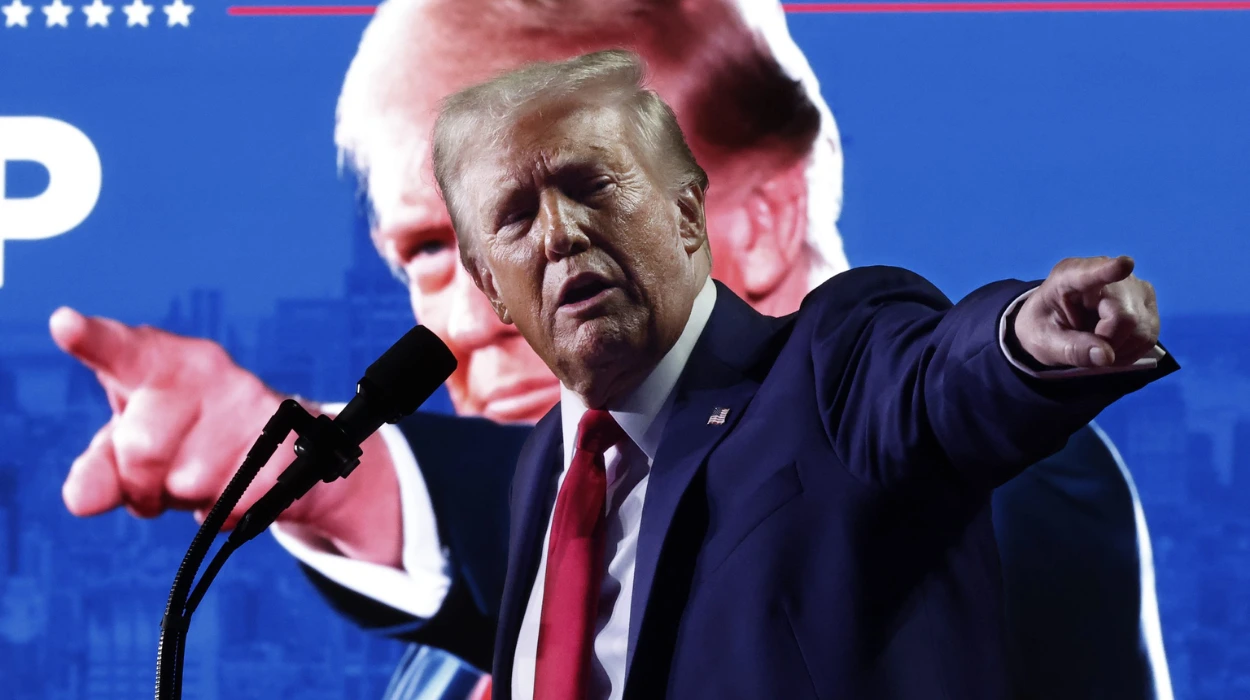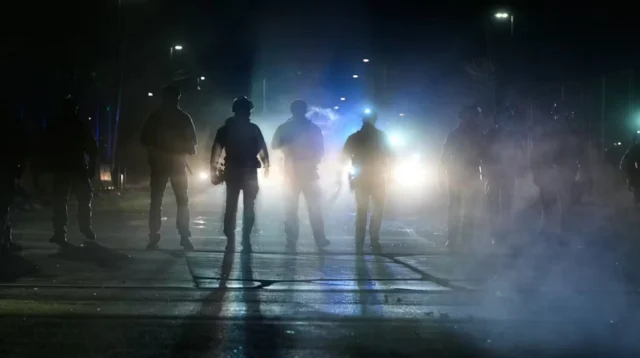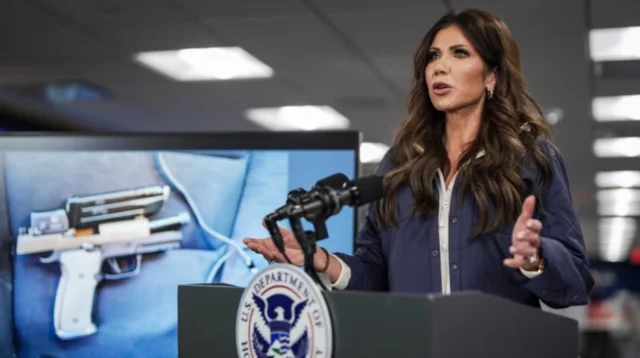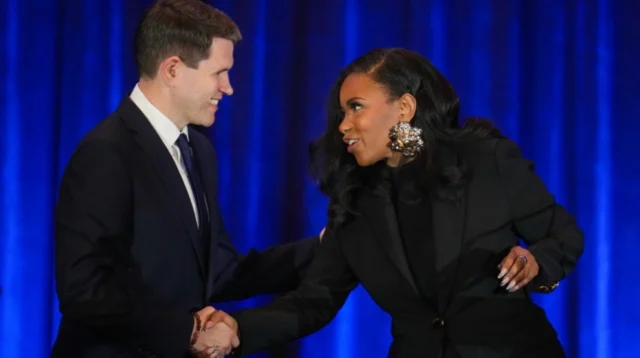This Middle East-style control over the manner in which the administration of President Donald Trump is being managed, in which issues regarding the renewal of the Abraham Accords are involved, has re-appeared in the year 2025 when this President is once again re-elected.
These agreements between Israel and four Arab states, the United Arab Emirates, Bahrain, Morocco, and Sudan, initially launched in 2020, normalized relations. Now Trump aims to expand the coalition and attract more Arab and Central Asian nations, introducing the program as a way to enter into a new realm of regional peace and economic prosperity.
The Abraham Accords have received great acclaim in Washington and other partner governments because of the way it has restructured regional cooperation based on shared economic and security interests. Turning attention to realignment, Trump has put accords in the category of peace plan and geopolitics plan to neutralize the interests of Tehran in the region.
Peace messaging amid increasing volatility
In addressing the populace, Trump has packaged the accords as evidence of American dominance in promoting peace. These accords, as he puts it, are proof that the Middle East will no longer be burdened by war and that economic integration as well as regionalism is possible without the historic central conflict between Israel and Palestine.
But this vision is increasingly coming under attack as tensions increase. The renewed war in Gaza since 2023 casts the long term viability of the peace efforts that have nothing to do with the Palestinian issue in doubt.
Gaza war and contradictions in U.S. foreign policy
By October 2023, over 60,000 Palestinians had died during the war in Gaza. The Trump administration has provided stiff defense to Israeli military activities as being self-defensive. At least it has brought about some form of a backlash in the international front at least the humanitarian fraternity and other international partners that are not satisfied that the killings of civilians will only keep on increasing and the level of instability will only keep on increasing in the long run.
Even as reports of infrastructure breakdowns and humanitarian disasters in Gaza continue to surface, Trump has not attached any strings to U.S. aid to Israel. At the one end of the pole of the message of peace that was declared by the Abraham Accords, his government and what may be referred to as the two-track solution of military power and the diplomatic accords development.
Postwar proposals and controversial governance plans
Trump envisions a postwar Gaza that incorporates ideas of a U.S.-supported reconstruction administration that some outlets term a trusteeship approach. This idea means that regional Arabs would take part in the reconstruction of the enclave but also presents the notion of partial relocations of the population, which is largely denounced by the Palestinian leadership and international organizations.
These options reflect a top-down perspective of peacebuilding where more emphasis is placed on externalization and economic planning, than on political inclusion. They also help to reveal the hypocrisy of preaching regional stability and unilateral prescriptions with limited local acceptability.
Strategic diplomacy anchored in military assertiveness
Trump is still touting a plan called Peace to Prosperity, which was originally published in 2020 and reimagines peacebuilding by focusing on economic investment, developing infrastructure, and cross-border cooperation. According to Trump who reintroduced the plan in 2025, sustainable peace would be achieved through security and integration of economies-not decades of extended political discussions.
This belongs to the extended Trump program of prioritizing transactional diplomacy and strategic reformation over classic statecraft. However, critics observe that such a refusal to grant the Palestinians sovereignty and settle on the rights of refugees would not help to solve the problem but rather fuel the war.
Iran containment and regional military alliances
Trump’s attempts at increasing the Abraham Accord are also connected to the new military pressure his administration has placed on Iran. In July 2025, the U.S. struck Iranian suspected nuclear sites concurrently, triggering an uproar in Tehran and stunning the region.
This, along with the sale of arms and military alliances with the Arab world, is to demonstrate that the Trump policy in the Middle East is as much diplomacy as it is long-term military deterrence policy. The strategy emphasizes an ideology that peace should be imposed with the help of power rather than be negotiated by compromising.
Regional and international responses
Countries that have been previously enrolled in the Abraham Accords including the UAE and Morocco have been quite tentative about the expansion initiative that they argue could lead to increased trade and resiliency in the region. Yet, a significant part of Arab populations distrusts the normalization process with Israel and sees it as a betrayal of the Palestinian cause, especially when violence in Gaza continues.
Palestinian chiefs have dismissed outright the deeds of the Trump administration as a type of coercion and unilateralism. Mahmoud Abbas and others have leveled a charge against the U.S. of silencing Palestinian voices and instead focusing on how to control regional order without redressing underlying grievances.
Concerns among U.S. allies
European and NATO allies have lamented humanitarian input of U.S. policy in Gaza and the ultimate results of neglecting the fundamental facets in Israeli-Palestinian tussle. Some support the normalization approach, but warn that any effort to forge a lasting peace will be sabotaged by displacement, occupation and civil rights.
The United Nations has urged peace and political negotiation and called on all the parties, including the United States, to renew their commitment to international law and humanitarian norms.
Navigating the uncertain future of regional peace
The Middle East policy of second-term President Donald Trump is a harsh-duality policy. On the one hand, he has strengthened regional alliances with the help of the Abraham Accords, and he has cast America as a major facilitator of economic collaboration. The other thing that correlates to this is that his government in Gaza has a militaristic and military combatant attitude towards Iran that portrays that they are practicing hard-power politics pushing diplomacy to the back seat.
The potential of having a peaceful Middle East has eluded as the region continues to grapple with the effects of these decisions. How the region would react to such an extended political conflict, would become the determinant whether Trump would be encouraged to balance his aggressive diplomacy with his strategic re-alignment, whether the region would be able to resolve any future disputes, whether peace-making per se would become more inclusive and whether economic bargains would place things in a more inclusive long-term frame of reference.





